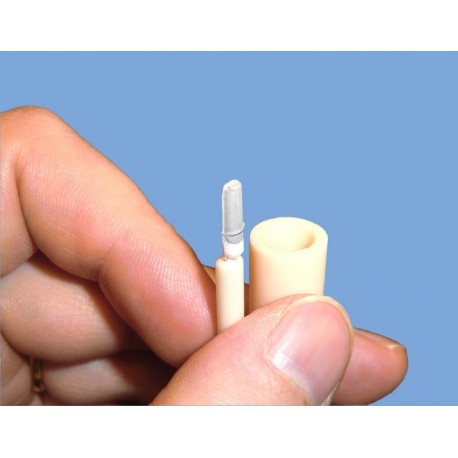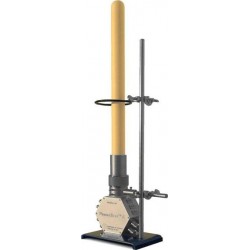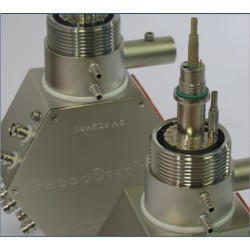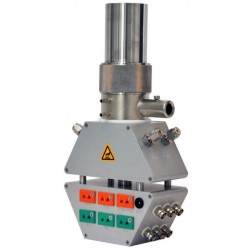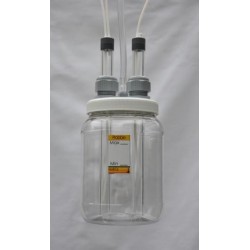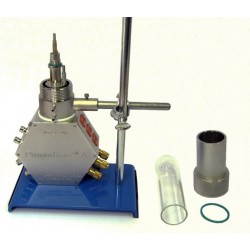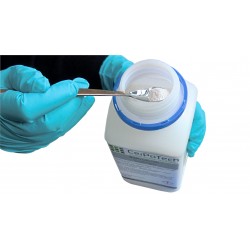No products
Prices are tax excluded
Product successfully added to your shopping cart
There are 0 items in your cart. There is 1 item in your cart.
MicroPoas Oxygen Sensors
MicroPoas
New
Tiny oxygen sensor that can be mounted directly next to your sample in the ProboStat Measurement Cell.
- Consulta este producto
- Remove this product from my favorite's list.
- Add this product to my list of favorites.
| The Sensor measures: | O₂ |
The use of controlled atmospheres during measurements at high temperatures is a specialty of the ProboStat. Nevertheless, the establishment of controlled atmospheres is not entirely trivial. This is mainly done before the gas enters the ProboStat, and may require one or more of prefabricated gas mixtures, gas mixing, total pressure control, electrochemical pumping, wetting, and drying and other filtering/gettering.
In some cases measuring pO2 at the region of interest is paramount; sometimes sending certain amount of oxygen is not same as having certain amount of oxygen at the target area (high temperature reactions, leakage, etc.) NorEcs provides two type of oxygen sensors:
1) The MOSE oxygen sensor is a tiny YSZ sensor that requires no reference gas and can be built to fit either in the inner or the outer gas chamber of ProboStat. The inside/outside chamber can also be the inside/outside of a membrane. The sensor is built to be as 3 wire electrode assembly and also acts as S-type thermocouple.
2) YSZ or other solid electrolyte tube replacing the sample support tube.
In order to control pO2 one usually uses mixtures of O2 and an inert gas (e.g. Ar, N2) for relatively oxidizing conditions, CO+CO2 mixtures for more reducing conditions and H2+H2O mixtures for even more reducing conditions. In both the latter types of mixtures, additions of inert gas (e.g. Ar) can be done to lower the activity of carbon and hydrogen without, in principle, affecting the oxygen activity. Monitoring of pO2 can be useful to check the actual activity, to provide feedback to a mixing or pumping system, or to provide information of instantaneous pO2 in transient experiments. However, one should be aware that monitoring methods may have flaws just like control (mixing and pumping) methods. Systems may be built with different levels of sophistication. For instance a gas containing water vapour or CO2 may be led through three cells: The first has an oxygen sensor and an oxygen pump by which an appropriate amount of oxygen is pumped in or out to reach the desired pO2. The second cell has the actual sample and is where the measurement is done. The third has a sensor where the pO2 of the gas leaving the measurement cell is monitored, as a check. One or more of the sensors may be integrated with the measurement cell if possible. However, most users will settle with a simpler system, using a mixing or pumping stage and one sensor.
MOSE (Micropoas™ oxygen sensor assembly)
We can now deliver MicroPoas oxygen sensor (Setnag, France), mounted ready for use in any standard ProboStat units. MicroPoas has built-in metal reference so no reference gas is required. It has high resistance to thermal shocks. This miniaturized sensor (diameter = 3 mm, length 10 mm) is suitable for measuring continuously partial pressure variation from 10-35 to 10 atm. Working temperature range for the normal version is 500 to 800°C, but high temperature version with range 600°C to 1050°C is also available. Instrumentation for reading the signal and measuring the temperature is optional. The input impedance > 1000 Mohm is required.
A tiny oxygen sensor can be mounted directly next to your sample in the ProboStat measurement cell:
- No reference gas required
- Normal version operating temperature 500ºC to 800ºC
- High temperature version, range 600ºC to 1050ºC also suitable for reducing atmospheres
- 10-30 to 10 atm
- Ready to use assembly of sensor, S-thermocouple and potential electrode
- Mountable at both inside- and outside- chamber of ProboStat
- For any ProboStat configuration (specify purpose on order: Inner or outer chamber, total length of the sensor or inform us on the length of your sample support tube)
Picture below shows the tip of the MOSE sensor next to a ProboStat sample support tube.

